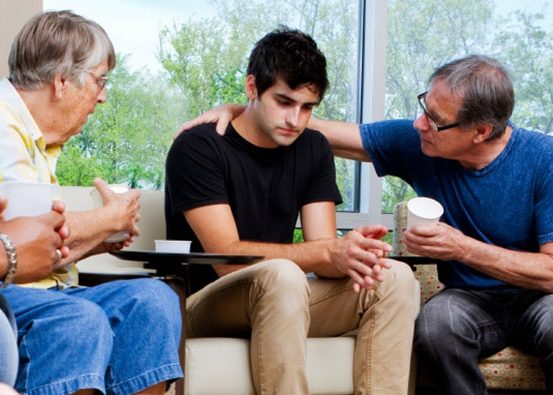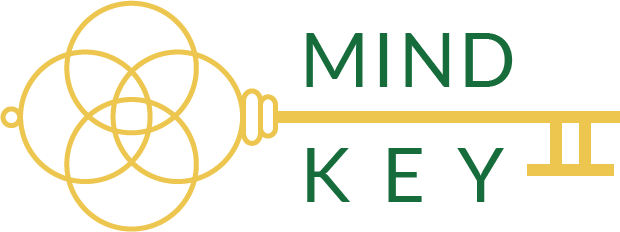
10 resources for addiction recovery
A Mind Key follower shares ten well-known addiction resources he has worked with, and offers his personal perspective. As someone still struggling with addiction, we have chosen not to share his name. Perhaps one or more of them could be a resource for you, or someone you love.
#1 Alcoholics Anonymous
One resource I found many times inspiring, and just the same many times boring, was a type of AA meeting

There are many different kinds of AA meetings. Try a few to determine which one is the best fit for you.
called the Commitments. They’re comprised of two or three people who are typically long term AA members. They have worked all 12 steps and are many years invested into sobriety and AA itself. They come to detox facilities and share their story with people on the other side of the fence—those who are in the detox facility for one reason or another, whether it be court ordered, family intervention, or just a desire to get clean and not be caught in a cycle of madness and chaos fueled by the drug of their choice.
If you listen to the commitment speakers there is much hope, strength, and knowledge to be gained. The energy in the room can be downright powerful with the right speaker. At the same time, someone droning on about the bar, the needle, or the glass pipe can put you to sleep as well. But overall, I think for someone in detox, a meeting like the Commitments is not only necessary, but healthy.
#2 Salvation Army
The Salvation Army is an excellent resource for an addict or alcoholic, plain and simple. As long as you are sober they will take you in, feed you, put you to work, and eventually give you the opportunity to get on your feet and re-enter society clear-headed and with some semblance of direction in mind.
Warning to someone who isn’t willing to commit to a long term process—Sally is a six-month program. You’re required to work a full 40 hours for them. You are given an extremely modest stipend for your work, as low as $5 per week to start. You’ll live in a dorm. Your first 30 days you cannot leave the premises unless it’s OKed by your counselor. You’re drug tested and given a breathalyzer regularly. Structure is a huge part of their model. You can stay past your six months and look for work, and finally be able to have a cell phone and begin to live like a normal civilian again. For someone desperately trying to get themselves straight, this can be a safe clean chance at a fresh start.
#3 Pain management
When I was going through my struggles with opiates, I found a doctor that referred me to a pain management clinic. I was prescribed a drug called suboxone to help myself, long term, wean off the pain pills and heroin I had been abusing all day, everyday. In my opinion, pain management just prolongs things and isn’t a very successful path to a true recovery. They’re feeding you one drug to stave off another, but the result is the same. In my experience, this more often than not, is another expense and a feeble attempt a truly getting clean. Not to say that it doesn’t work for many people, but I just don’t know anyone that weaned for 12 to 18 months.
If you go to a pain management doctor who requires meetings and counseling, your cost is higher, but your chances of success increase. Inherently, success in tackling an addiction come from within…. no one can do it for you.
#4 The Healing Place, Louisville, KY

The Healing Place is a homeless shelter, like Sally and many others, but this one is unique in my experience. They make you get out and grind physically for your success. They are the most intensive resource I’ve ever encountered. You walk three miles to and from to classes and meetings, twice a day, five days a week—regardless of weather, how you feel or anything. You’re required to attend 15 meetings minimum a week but the powers that be think the minimum isn’t enough. They feed, clothe and house you. You sometimes have to wait for a permanent bed, which requires you to stay in the shelter until they call you up.
They demand devotion and commitment to sobriety. Nothing else matters except working the steps. It’s an extraordinary program that has an extremely high success rate with those who finish the long term program. Their minimum commitment is six to nine months, but for those who have lost everything, it’s a chance to be healthy and get self confidence and become a productive member of society again.
#5 Faith Farm, Ft. Lauderdale, FL
I’ve also experienced a little bit of Jesus in my traversing through the rehab process. Faith Farm is renowned and reputable and like The Healing Place, it takes the utmost devotion and willingness. I could not do it. Their program is nine months with no phone, no outside contact, and church required on a daily basis. It is not a terrible atmosphere by any means, but it is a faith-based recovery option for those who don’t agree with the 12 Steps. No meetings are offered here. Just Jesus and sobriety.
#6 Narcotics Anonymous
I’ve been to many NA meetings over the years. They are less intense and seem to be a bit more real than your typical AA meeting. The process is the same, and the goal is the same. I preferred NA actually if I had to choose a type of meeting to attend. AA can be almost political if you find a home group. NA, on the other hand, seems like a no borders option for those who feel like there could be no one closer to rock bottom.
#7 Family
This, to me, is by far the most important resource to have if you’re lucky enough to have it. These are the people that love you and want to see you be OK. If they intervention you and tell you that you need help, they may not know the whole story, but they’ve seen a change in you. My experience lends that listening to them and taking action can put you on a path to recovery. Having their support is extremely helpful, though many of us have burnt these bridges just the same…
#8 Detox
There are many types of detoxification facilities. Some funnel you directly into an intensive six to nine month program. Others send you to outpatient treatment. It all depends upon the individual and how deep down the rabbit hole they are. But if you’re an addict who had crossed many lines and gone too far, sometimes—most times—detox is necessary. Insurance companies offer payment for these facilities, and many states, like Rhode Island, offer state-funded beds to give people a chance to get off the drugs or alcohol and come up with a treatment plan with the help of a counselor. Detoxing is the first physical step in getting and staying clean. We all have to do it!
#9 Al-Anon

Al-Anon is a resource available to those who are friends and family of the addict. They are meetings set up to allow people to vent about what’s going on with those they care about, learn how to cope, maybe take a step back and see things from another point of view from someone else suffering. The addiction affects not only the addict, but the people in their lives just as much, if not more.
#10 Recovery Coach
A recovery coach is an outstanding resource. It’s a person who volunteers their time to talk to the addict or alcoholic. They bring them to meetings, help them obtain a sponsor, check on them and sometimes see if they’re holding themselves accountable for what they’ve been doing. Coaches are usually recovering themselves but they are not placed into such a position of responsibility without many years of personal sobriety. They offer hope and optimism to many trying to gain just that. A recovery coach is a very good asset in the fight against addiction… and they’re free! Recovery coaches can be found via your detox facility, hospital, your local AA meeting, or through an online search.



 family can be one of the most powerful resources for addiction
family can be one of the most powerful resources for addiction  family can be one of the most powerful resources for addiction
family can be one of the most powerful resources for addiction